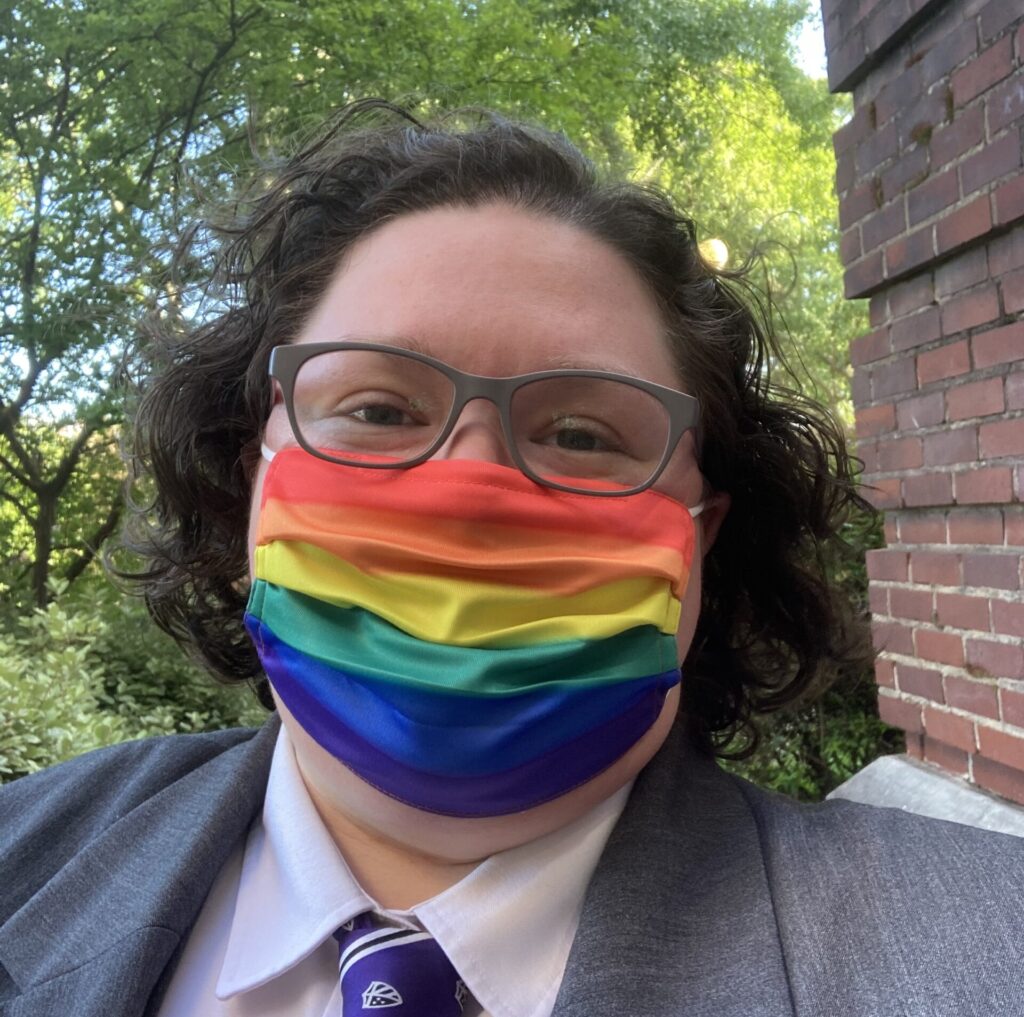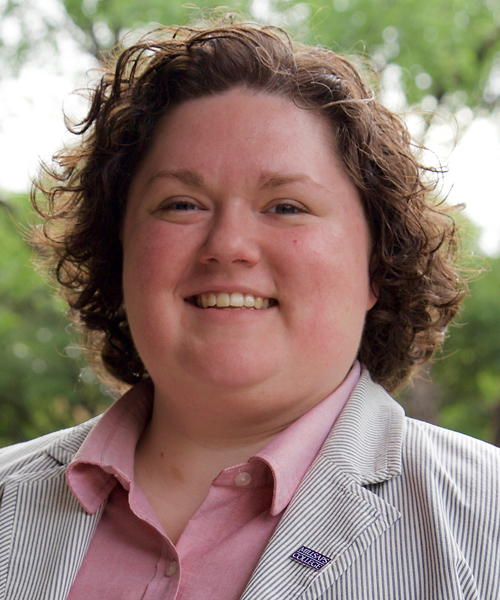Celebrating Pride Month with Katie Sorey

June is Pride month! Faith & Reason is celebrating by talking to LGBTQ Christians and ministers about their experience in the church, as well as how individuals can help inspire progressive change in their own congregations. This week, we talked to Katie Sorey, Student Life Coordinator for Inclusion and Involvement at Millsaps College, in Jackson, Mississippi.
What was your experience like growing up in the church to now, specifically relating to being LGBTQ and a Christian? Especially being in the south?
Church was a huge part of my life growing up. My family was actively involved in several ministries at the large downtown United Methodist Church where I was baptized as a baby. It is where I learned to love God and God’s people, and where I felt so loved. Funny enough, I never heard any negative preaching or teaching against LGBTQ+ people at my home church. Human sexuality just wasn’t talked about. However, that deafening silence created a void that was all too easily filled by non-affirming Christian voices I encountered at my private, Christian elementary school, what was taught to my peers at other churches, and what I saw on Christian media and in the news. My home church’s silence didn’t challenge the pervasive false narrative that “you can’t be a good Christian and be gay.” I believed this because I never heard otherwise in church or from my faith community.
I was in my mid-twenties and in my second year of seminary before I heard a sermon preached from a pulpit in a church that explicitly affirmed LGBTQ+ people. It broke me in ways I cannot begin to articulate. Years of self-hatred, repression, and desperately trying to keep up appearances of being a “good Christian girl” hit me like a tidal wave. Does God truly love me just as I am, even though I’m attracted to other women? Am I still fearfully and wonderfully made in God’s own image as an LGBTQ+ person? Are there other Christians out there who will continue to love and accept me once I come out?
Yes, yes, and yes! But I didn’t know that at the time because the affirmation and acceptance of LGBTQ+ people were never talked about at my church, even by people who are now visible allies. The silence from the affirming people in my life was just as damaging as the voices of judgment and condemnation.
What inspired you to get a Master of Divinity?
I got a Master of Divinity because I wanted to be a pastor in the United Methodist Church. I’ve never known life in the church where there wasn’t at least one clergy woman on staff at my church. So, when I was 14 years old and first heard God calling me to a life of ministry and service it wasn’t a big deal to accept or come to terms with, because of course women can be pastors! I had so many people, laity and clergy alike, who nurtured and supported my call to ministry. Through high school and college, I was able to explore and discern how I could live into my calling. I had amazing opportunities to participate in service and relief ministry efforts, worship planning and leadership, and advocating for our vulnerable and marginalized neighbors.
Time and time again, I received the external and internal affirmation that I had the gifts to serve in ordained ministry. I poured myself into this path because it felt like the right and faithful thing to do. On the other hand, I was so deeply closeted and ashamed of my sexuality and identity that I clung to that affirmation like a life raft. I convinced myself that if I was a good enough student/candidate for ministry/pastor that would be enough for me and for others. Seminary was some of the worst days of my life because I was drowning with the weight of my shame and the expectations of others. This led to debilitating depression and anxiety. Seminary was also some of the best days of my life because I found this community of love and support while I was learning about who God is. It truly is by the grace of God, the prayers of my mother, and the support of those friends that I made it out of seminary alive… earning a degree was of secondary importance.
Can you tell me about what you do now in your role as Student Life Coordinator for Inclusion and Involvement?
In this position I provide advising and programming support for our identity-based and advocacy student organizations, I work with international students, I advise the student programming committee and provide staff support for student events on and off campus, and I co-supervise resident assistants.
I’m currently in the discernment process for ordination in the Episcopal Church, but I feel that my work in student affairs is a type of ministry. I am gifted with the opportunity to walk alongside students through the highs, lows, and revelations of college. Sometimes we talk about faith and God; but more often than not, I get to hold space with students as they explore and discern their gifts and callings.
How can churchgoers become activists for LGBTQ issues in their congregation?
Put your words into action! If your church says “We Welcome All People”, show me how you do that. Does your church explicitly state that you affirm and support people of all identities, orientations, and expressions? Do your facilities have single occupancy or gender-neutral bathrooms? Does your church and/or denomination marry LGBTQ+ people? Are your clergy and lay leaders trained in best practices for LGBTQ+ allyship? Are LGBTQ+ people visible in worship and leadership at your church?
There are a lot of resources available to congregations about how to create safe and affirming spaces for LGBTQ+ people. You have to do the work of radical hospitality and allyship before “We Welcome All People” truly means something.

Pride Month is the perfect time to make sure your church is inclusive and supportive of all LGBTQ+ people. Learn how to inspire progressive change in your own church with the Faith & Reason Toolkit!
